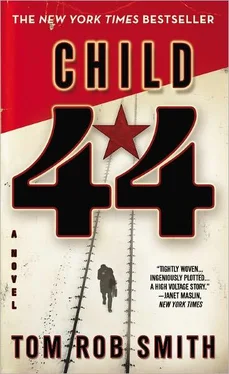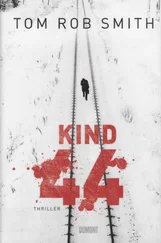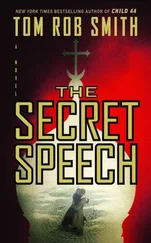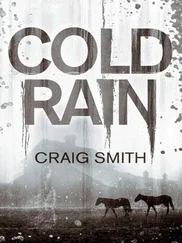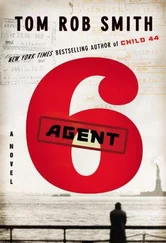Reaching the house he took off his boots and coat and went to the bedroom. Opening the door he was startled by a figure at the window. His wife was awake, staring out at the barn. Hearing him enter she turned around. Her small frame gave no indication of her capacity to lift and carry and cut, to work twelve-hour days, to hold her family together. She didn’t care that Anatoly had once saved her husband’s life. She didn’t care about their history, their friendship. Loyalty and indebtedness were abstracts. Anatoly was a threat to their safety. That was real. She wanted him gone, as far away from her family as possible, and at this precise moment she hated him — this gentle decent friend whom she’d once loved and treasured as a guest — more than anyone else alive.
Mikhail kissed his wife. Her cheek was cold. He took her hand. She stared up at him, noticing that he’d been crying.
— What were you doing outside?
Mikhail understood her eagerness. She hoped that he’d done what was necessary. She hoped he’d put his family first and killed that man. That would be the right thing to do.
— He left the barn door open. Anyone could’ve seen it. I shut it.
He could feel his wife’s grip slacken, feeling her disappointment. She thought him weak. She was right. He had neither the strength to murder his friend nor the strength to help him. He tried to find some words of comfort.
— There’s nothing to worry about. No one knows he’s here.
Same Day
The table had been smashed, the bed turned upside down, the mattress shredded, pillows torn apart and floorboards ripped up, yet so far the search of Anatoly Brodsky’s apartment yielded no clue as to his whereabouts. Leo crouched down to examine the fireplace. Stacks of papers had been burnt. There were layers of fine ash where correspondence had been heaped and set alight. Using the muzzle of his gun he raked the remains hoping to find some fragment untouched by fire. The ashes fell apart — everything was burnt and black. The traitor had escaped. Leo was to blame. He’d given this man, a stranger, the benefit of the doubt. He’d presumed he was innocent; the kind of mistake a novice might make.
Better to let ten innocent men suffer than one spy escape.
He’d disregarded a fundamental principle of their work: the presumption of guilt.
Despite accepting responsibility, Leo couldn’t help but wonder that if he hadn’t been forced to waste the entire day dealing with the accidental death of that little boy, would Brodsky have escaped? Meeting relatives, stamping out hot-headed rumours — this wasn’t the work of a senior MGB officer. Instead of personally running a surveillance operation he’d agreed to sideline himself, untangling what amounted to little more than a personal affair. He should never have said yes. He’d become complacent about the threat posed by this man Brodsky. His first serious misjudgement since joining State Security. He was aware that few officers ever got an opportunity to make a second mistake.
He hadn’t thought much of the case: Brodsky was educated, with some competence in the English language, dealing with foreigners on a regular basis. This was grounds for vigilance but, as Leo had pointed out, the man was a respected vet in a city with very few trained vets. Foreign diplomats had to take their cats and dogs to someone. Furthermore this was a man who’d served in the Red Army as a field doctor. His background was impeccable. According to his military records he’d volunteered and despite not being technically qualified as a doctor, despite his expertise being injured animals, he’d worked in several field hospitals and subsequently received two commendations. The suspect must have saved hundreds of lives.
Major Kuzmin had quickly guessed the reason for his protégé’s reservations. During Leo’s own military career he’d been treated by field doctors for numerous injuries and clearly some kind of war camaraderie was holding him back. Kuzmin reminded Leo that sentimentality could blind a man to the truth. Those who appear the most trustworthy deserve the most suspicion. Leo recognized it as a play on Stalin’s well-known aphorism:
Trust but Check.
Stalin’s words had been interpreted as:
Check on Those we Trust.
Since those who weren’t trusted were scrutinized with the same vigour as those who were, it meant that there was at least a kind of equality.
The duty of an investigator was to scratch away at innocence until guilt was uncovered. If no guilt was uncovered then they hadn’t scratched deep enough. In the case of Brodsky the question wasn’t whether foreign diplomats met him because he was a vet but rather had this suspect become a vet in order that foreign diplomats could openly meet him. Why did he establish his practice within walking distance of the American Embassy? And why — shortly after he opened this practice — did several employees from the American Embassy obtain pets? Finally, why was it that the pets of foreign diplomats seemed to require more frequent attention than pets belonging to a typical citizen? Kuzmin had been the first to agree that there was a comical aspect to all of this and it was precisely this disarming quality which had made him uneasy. The innocence of the circumstances felt like a brilliant disguise. It felt like the MGB was being laughed at. There were few more serious crimes than that.
Having considered the case and noted his mentor’s observations, Leo made the decision that instead of arresting the suspect outright they would have him followed, reasoning that if this citizen was working as a spy then it was an opportunity to discover who he was working with and arrest them all in one swoop. Though he never said as much, he was uncomfortable making an arrest without more evidence. Of course that was a qualm he’d lived with throughout his professional life. He’d made many arrests knowing only the citizen’s name and address and the fact that someone mistrusted them. A suspect’s guilt became real as soon as they became a suspect. As for evidence, that would be acquired during their interrogation. But Leo was no longer a lackey who merely followed orders, and he’d decided to make use of his authority and do things a little differently. He was an investigator. He’d wanted to investigate. He had little doubt that he’d eventually arrest Anatoly Brodsky, he just wanted proof; some sign of guilt other than mere conjecture. In short, he wanted to feel OK about arresting him.
As part of the surveillance operation, Leo had taken the day shift, following the suspect during the hours of eight in the morning through to eight in the evening. For three days he’d observed nothing out of the ordinary. The suspect worked, ate lunch out and went home. In short he seemed a good citizen. Perhaps it had been this innocuous appearance which had dulled Leo’s senses. When, this morning, he’d been pulled aside by an irate Kuzmin, briefed on the Fyodor Andreev situation — the dead boy, the hysterical reaction — and ordered to fix it immediately, he didn’t protest. Instead of putting his foot down and pointing out that he had far more important things to do he’d acquiesced. With hindsight how ridiculous it all seemed. How frustrating that he was conversing with relatives, coaxing children, whilst this suspect, this traitor, was making his escape, making a mockery of Leo. The agent delegated to maintain watch had idiotically thought nothing of the fact that there hadn’t been a single customer at the veterinary practice all day. It wasn’t until dusk that the agent had become suspicious and entered, intending to pose as a customer. He’d found the premises empty. A back window had been prised open. The suspect could’ve escaped at any time, most probably in the morning, soon after he’d arrived.
Читать дальше
